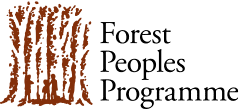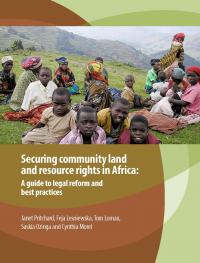Focal point
Location
Mission
Forest Peoples Programme supports the rights of peoples who live in forests and depend on them for their livelihoods. We work to create political space for forest peoples to secure rights, control their lands and decide their own futures.
Goals
- Get the rights and interests of forest peoples recognised in laws, policies and programmes
- Support forest peoples to build their own capacities to claim and exercise their human rights
- Counter top-down policies and projects that threaten the rights of forest peoples
- Promote community-based sustainable forest management
- Ensure equity, counter discrimination and promote gender justice
- Inform NGO actions on forests in line with forest peoples’ visions
- Link up indigenous and forest peoples’ movements at the regional and international levels
Resources
Displaying 26 - 30 of 52Indigenous Peoples’ Rights, Forests And Climate Policies In Guyana: A Special Report
Forest Peoples Programme and the Amerindian Peoples Association are pleased to announce the publication of a new special report:
Edited by Kate Dooley and Tom Griffiths
Authors: Oda Almås (FPP), Lawrence Anselmo (APA), Laura George (APA), Tom Griffiths (FPP), Solveig Firing Lunde (RFN) and Jean La Rose (APA)
May 2014
ISBN 978-0-9544252-8-9
Securing community land and resource rights in Africa: a guide to legal reform and best practices
Land that is possessed, occupied and used by communities according to ‘customary law’ is the most common system of land and resource ownership in Africa. Customary law is the framework of rights, rules and responsibilities based on community customs and practices, governing ownership and management of a community’s lands, territories and resources.
Violations of indigenous peoples' territorial rights: the example of Costa Rica
Costa Rica, the subject of this article, is an upper middle income country that is widely regarded as having a generally positive human rights record. It has also avoided the violent conflicts and political instability that have characterised most of its closest neighbours in the last decades of the 20th century. However, as with almost all other countries considered to have good track records on human rights, the situation of indigenous peoples stands out as a major blemish.
Garantir les droits communautaires aux terres et aux ressources en Afrique: guide de réforme juridique et des meilleures pratiques
FERN, the Forest Peoples Programme (FPP), ClientEarth and the Centre for Environment and Development (CED)
23 Janvier, 2014
Ce guide illustre les aspects clé des lois et des droits fonciers essentiels pour garantir la propriété et la contrôle des terres et des ressources par les communautés, exprimés également par le concept de la sécurité foncière des terres et des ressources. Il explique comment identifier et créer des possibilités de réforme législative et présente des exemples de réformes ayant eu lieu dans différents pays africains.
National Updates on Agribusiness Large Scale Land Acquisitions in Southeast Asia Brief. Brief #8 of 8: Union of Burma
Part of a 3 year collaboration among the national human rights institutions of the region. Each of 8 national studies aims to pull together in a simple form, updated information about large-scale land acquisitions in the region, with the aim of identifying trends, common threats, divergences and possible solutions. As well as summarising trends in investment, trade, crop development and land tenure arrangements, the studies focus on the land tenure and human rights challenges.






